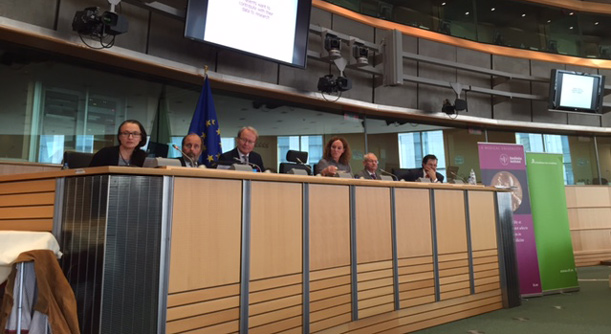This is my first blog post for EPF, and I am thrilled to be able to share my views with so many dedicated readers. As a physician, a scientist and a breast cancer patient myself, I hope to provide an unusual perspective, in that I can speak from all three points of view.
I believe in being straightforward with my patients because I know they can handle that. I understand the impact cancer diagnosis can have to people, their families and friends, but I remain convinced that patients are always better off well informed. Informed patients are more likely to have trust in the medical profession which leads to a more honest and solid relationship with their health professionals and are able to better handle the side-effects caused by the cancer treatment. In addition, it increases the quality of life during treatment and reduces the costs as unnecessary visits to the doctor. Well informed people are also more likely to take more responsibility in staying healthy and prevent diseases, which is increasingly important in an ageing population.
Patient involvement and empowerment means moving from being just part of a problem, to becoming part of a solution. This is highly connected to the new General Data Protection Regulation that will be adopted in the next days by and will affect how researchers may use patient’s data for large register-based research. A common reaction from my patients after they received their cancer diagnosis – and that I felt myself – is the strong will to contribute to help others. “Can the findings from my case, and the cases of millions of others, be of use to future patients? Can new treatments and better care be developed from what researchers can learn from my illness? Then do what you can, use my data to help others” – that is the sentiment.
Patients want to share data, we want to be a part of research and medical improvement, and we want to minimize the risk of our children having to go through the same diagnosis. And if they do – we want them to have improved treatment and improved chances to survive! We want to be part of the solution. If you share this belief and want to support it, I recommend that you have a look at the data saves lives website and get involved!
